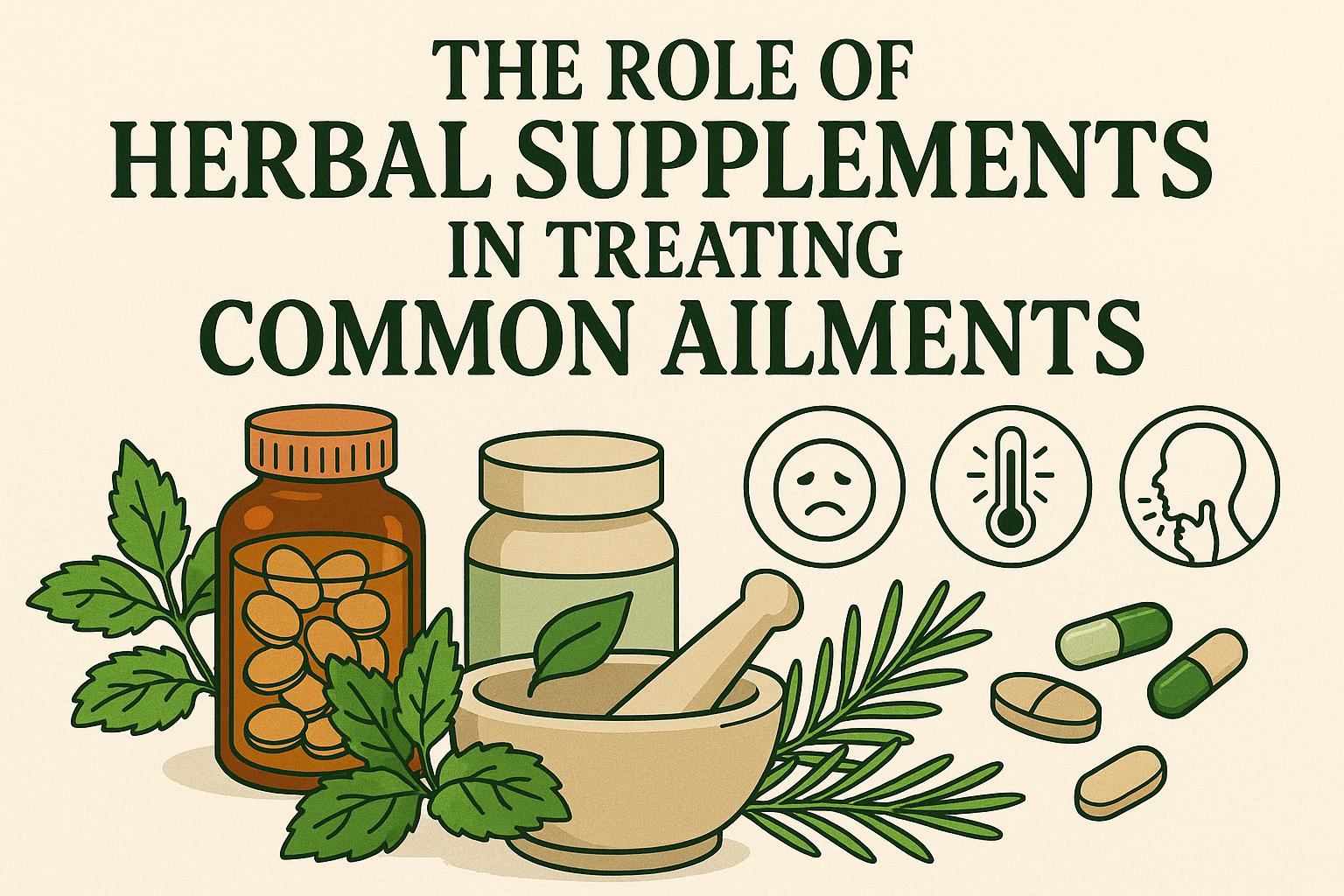
The role of herbal supplements in treating common ailments.
The Role of Herbal Supplements in Treating Common Ailments
The resurgence of interest in herbal supplements reflects a growing shift towards natural remedies in the management of various health issues. This return to traditional practices highlights a curiosity and preference for complementing modern medicine with nature-based solutions. As research continues to evolve, the anecdotal success stories from users of herbal supplements continue to promote their use. Understanding the multifaceted role these supplements play in addressing common ailments requires an exploration into their origins, benefits, and considerations.
Understanding Herbal Supplements
Herbal supplements, sourced from various parts of plants, have been a foundation of healing practices for centuries. These supplements can be marketed in multiple forms, including teas, capsules, tablets, tinctures, and even raw plants. The diversity in form allows for versatility in how they are consumed, adapting to different preferences and needs.
The compounds extracted from these plants are believed to deliver various health benefits. Compounds like antioxidants contribute to protecting the body from oxidative stress, while anti-inflammatory properties may aid in reducing swelling and pain. Despite the enthusiasm around herbal supplements, the Food and Drug Administration (FDA) does not apply the same rigorous approval processes to these supplements as it does to pharmaceuticals. Thus, users should approach the consumption of herbal products carefully and be informed about their potential interactions and side effects.
Addressing Digestive Issues
Digestive health is critical for overall well-being, and disturbances in digestion, such as bloating, indigestion, or conditions like irritable bowel syndrome (IBS), can disrupt daily activities and quality of life. Herbal remedies such as peppermint oil and ginger have been traditionally used and reported by some users to alleviate these digestive troubles.
Peppermint oil is noted for its antispasmodic properties, potentially aiding in relaxing the muscles of the gastrointestinal tract and relieving IBS-related discomfort. Users have also turned to ginger for its reputed ability to combat nausea and aid digestion. It’s commonly prepared in teas or extracted into oils and supplements available over the counter.
Managing Stress and Anxiety
In today’s world, the pressures of daily life and work have made stress and anxiety topics of increasing concern. The possible calming effects of herbal supplements have made them a go-to for some looking to manage stress naturally, including herbal options such as valerian root, chamomile, and ashwagandha.
Valerian root is often used to promote sleep and reduce feelings of nervous tension. Individuals with mild anxiety or insomnia might explore valerian supplements as an adjunct or alternative to over-the-counter and prescription solutions. Similarly, chamomile—widely consumed as a soothing tea—may have a mildly calming effect, making it a popular choice for those seeking a natural anxiety reducer. As for ashwagandha, a staple in traditional Indian medicine, it is reputed to help the body adapt to stress by promoting homeostasis and a sense of balance.
Boosting Immune Function
A strong immune system is essential for protecting against ailments, especially during peak seasons of colds and flu. Herbal supplements like echinacea and elderberry have been widely used to support immune function.
Echinacea is commonly believed to reduce the intensity and duration of the common cold, helping to fortify the body’s resistance against infection. Users looking for added support might turn to elderberry, thought to offer similar benefits, particularly in reducing the severity and length of respiratory tract illnesses.
Considerations and Precautions
While the potential benefits of herbal supplements can be appealing, users must adopt a cautious approach. Consulting with healthcare professionals is a critical step before beginning any new supplement routine, particularly for individuals currently taking prescribed medications or those with existing health conditions. The possibility of interactions between herbal supplements and conventional medications cannot be disregarded, as they could lead to adverse reactions or reduced therapeutic efficacy.
Moreover, the market for herbal supplements is vast, and product quality can vary significantly. Investigating the reputation of the manufacturer and opting for brands that have undergone third-party testing can provide an added assurance of both quality and safety. This can mitigate some of the risks associated with discrepancies in concentration and purity of the active ingredients.
Finally, while herbal supplements might offer complementary support for some, they should not be viewed as a standalone cure. The integration of herbal supplements should ideally occur within a comprehensive approach to health management, which includes maintaining a balanced diet, regular physical activity, and routine check-ups with healthcare providers.
In summary, herbal supplements have the potential to offer natural support for a range of common health complaints. Their integration into a health regimen requires careful consideration and responsible usage. Through informed decisions and consultation with healthcare professionals, individuals can safely explore the benefits of these time-honored remedies.
